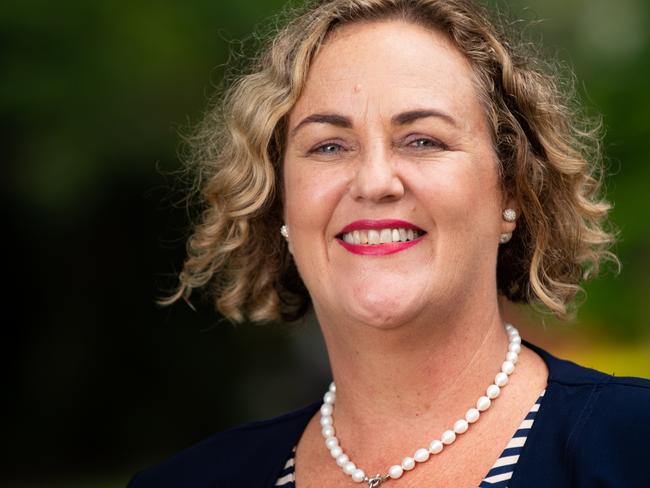Queensland Premier Annastacia Palaszczuk flags two-week delay to school term
Queensland parents have been warned school’s return could be delayed to allow unvaccinated primary students to get their first jab.
Parents in Queensland have been warned that the return to school could be delayed by two weeks to give unvaccinated primary school students more time to get their first jab.
Children aged five to 11 are not eligible for the Covid-19 vaccine until Monday, meaning millions of primary students are due to return to classrooms without the protection of two doses, which must be given eight weeks apart.
Annastacia Palaszczuk warned that the next six weeks would be “very tough for Queensland” and assured parents she would not allow unvaccinated children to return to school during the peak of the Omicron wave.
“We’re looking at a one- to two-week delay in relation to return to school. We will give you more concrete decisions on this over the coming days,” the Premier said.
The flagged delay goes against Scott Morrison’s insistence that students should return “on day one of term one” but was welcomed by Queensland’s two major teacher unions, who said the delay “makes sense”.
“Like everyone else in Queensland, we are watching daily case numbers grow. We can’t have Omicron explode in our schools,” Queensland Teachers’ Union president Cresta Richardson said.
“We have the time to make smart decisions right now. This is why delaying the return to school makes sense.”
Independent Education Union Queensland secretary Terry Burke backed the delay and said he was eager to see the national return-to-school plan that was announced by the Prime Minister on Wednesday.

“This plan needs to deal with how schools will manage staff and student exposures and return-to-school policies,” he said.
Ms Palaszczuk has also urged vulnerable people – including the sick, pregnant and elderly – to stay home as much as possible for the next six weeks after the state recorded a new daily high 10,953 cases on Friday.
There were 327 people in hospital with Covid-19 in Queensland and 14 in intensive care, including three on ventilation, she said.
“There are more (cases) out there because of people getting a positive test at home,” Ms Palaszczuk said. “We’re asking you to minimise your going out for essentially the next six weeks.
“That’s not a big ask when you’ve seen countries around the world that have endured up to a year of lockdown.”
Restrictions were tightened in the country’s three largest states this week. In NSW, singing and dancing have been banned in hospitality venues and non-urgent surgery has been suspended until mid-February.
Density limits were reintroduced in Victoria on Thursday night and venues are encouraged to close dance floors to slow Omicron’s spread among the young.
Queensland has no plans to reintroduce density limits at hospitality venues because the state‘s chief health officer Dr John Gerrard does not think it would have much impact.
“I have not given advice to the government to reimpose density limits, based on the information I am getting from a number of epidemiologists,” he said.
“I acknowledge this is controversial and others won’t agree with it, but we are not going to stop this virus with a minor change like imposing a density limit of one person per 2sq m.
“I think the evidence suggests that it is not going to have a major impact on the virus but it would have a major impact on the greater society, so I have not given that advice.”




To join the conversation, please log in. Don't have an account? Register
Join the conversation, you are commenting as Logout